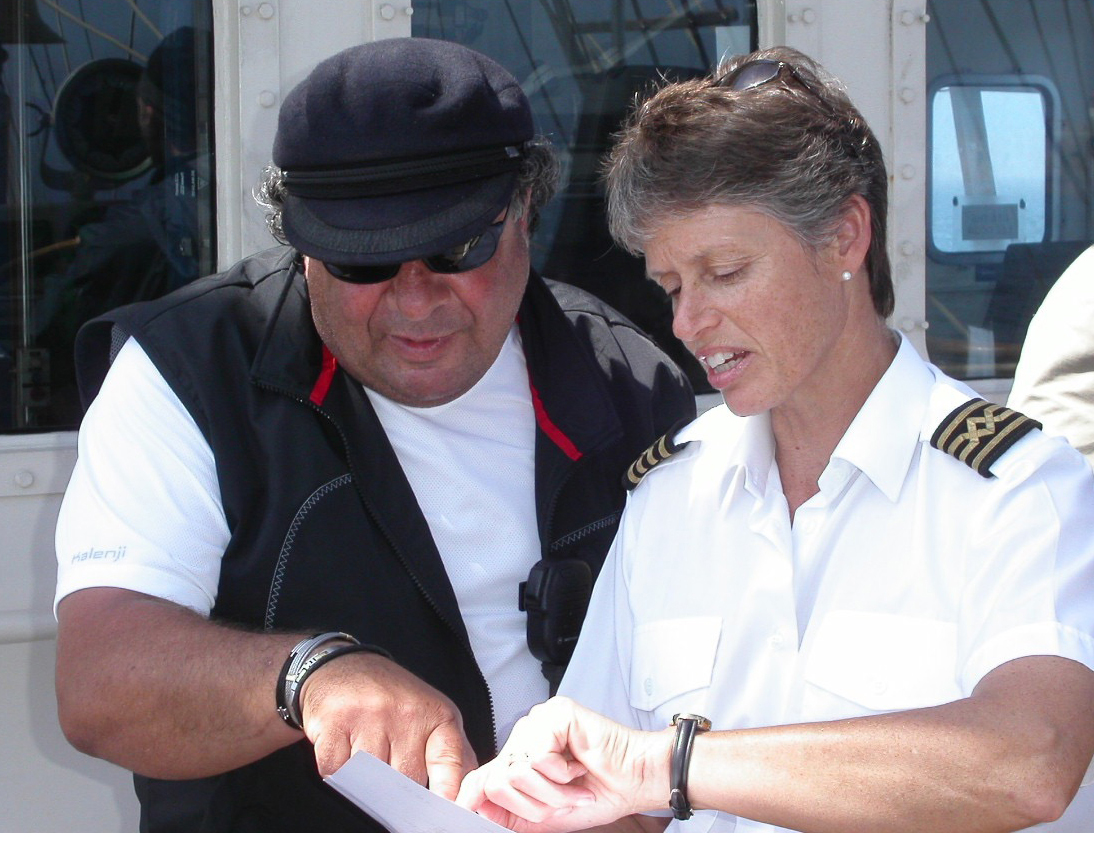- Topics
- Campaigning
- Careers
- Colleges
- Community
- Education and training
- Environment
- Equality
- Federation
- General secretary message
- Government
- Health and safety
- History
- Industrial
- International
- Law
- Members at work
- Nautilus news
- Nautilus partnerships
- Netherlands
- Open days
- Opinion
- Organising
- Podcasts from Nautilus
- Sponsored content
- Switzerland
- Technology
- Ukraine
- United Kingdom
- Welfare

Captain Barbara Campbell's many notable achievements include being awarded the Merchant Navy Medal and the Nautilus Victoria Drummond award. She describes her most recent role on tall ships training vessels, as well as providing insights into her four decades at sea. Although her cadetship was largely in cargo ships, she spent eight years on cruise ships, seven years in ro-ro ferries and the last 23 years in sail training ships.
What is a typical day in your job?
I would generally get up at some stage during the night watches, especially if I felt a change in motion of the ship or an increase in the wind.
I am up at 07.00hrs to go to the bridge to check the ship's position, the weather forecasts and the crew. After discussing the plans for the day with the Mate, I would walk round the deck, visit the galley and make a drink before heading for a shower. Breakfast is at 08.00hrs followed by the morning meeting. This meeting is attended by the permanent crew, volunteer crew and four watch leaders from what we call the 'voyage crew'. The morning meeting allows the plans for the day to be promulgated plus the opportunity to find out any defects or problems which may have cropped up.
After checking the tides and weather forecasts, I would contact the next port to confirm the berth before sending a morning report to the Jubilee Sailing Trust office.
'Smoko' is the opportunity to have a coffee and chat with the voyage crew. The remainder of the morning could be spent bracing the yards and setting more sail.
After lunch we discuss maintenance issues, and there may be time for paperwork, before calling for 'All Hands' on deck at 15.30hrs for handing sail. Pre-arrival training for berthing and linesmen takes place, and, if one is required, then a pilot will board. On the wheel for arrival, I like to have a member of the voyage crew present who is in a wheelchair, blind or with another physical disability. The ship's RIB is launched, and the linesmen are run ashore. I manoeuvre the ship alongside, giving helm orders. Once alongside, I pass information to the crew about things to do in that port, plus the estimated time of departure (ETD) for the following day.
Why did you choose a career at sea?
I sailed dinghies as a youngster and thought it would be good to work at sea. I became a deck cadet on leaving school. The Royal Navy did not take women in those days and I joined P&O Steam Navigation Co. in 1975 as one of their first three female cadets.
Tell us some of your career highlights so far – and challenges
My highlights and challenges: Obtaining my master's certificate in 1986; getting my first command in 1999; realising that I could do my job effectively; arriving safely in Southampton after having sailed round the World from 2012 to 2014 (it must be stressed there were two captains, myself and another captain with one on leave at any one time); winning the 'Battle of the Barques' a race between the Jubilee Sailing Trust's two ships,
When I first went to sea, not everyone approved of the idea of female cadets. However, in the main, I had plenty of help and encouragement from the guys I worked with. I think the important thing is to be seen to work hard and thus earn the respect of the rest of the crew.
I like to have a member of the voyage crew present who is in a wheelchair, blind or with another physical disability Barbara Campbell, master
How can women be made to feel welcome and retained in a career at sea?
The ships I worked on latterly welcomed women with around half the permanent crew being female. I think both men and women at sea, particularly the junior officers, need to be encouraged and praise given where it is due.
What are the best things about your job?
Sailing a tall ship all round the world, with a dedicated permanent crew and wonderfully varied voyage crew of all physical abilities.
Would you recommend seafaring as a career?
Working at sea today is very different from what it was when I first went away. I think there are fewer opportunities today and anyone going to sea should be content to work away from home for extended periods.
Tell us one thing that people may not know about your job
The captains on our ships choose which ports to call into and are instrumental in shaping the voyage.
Tags
